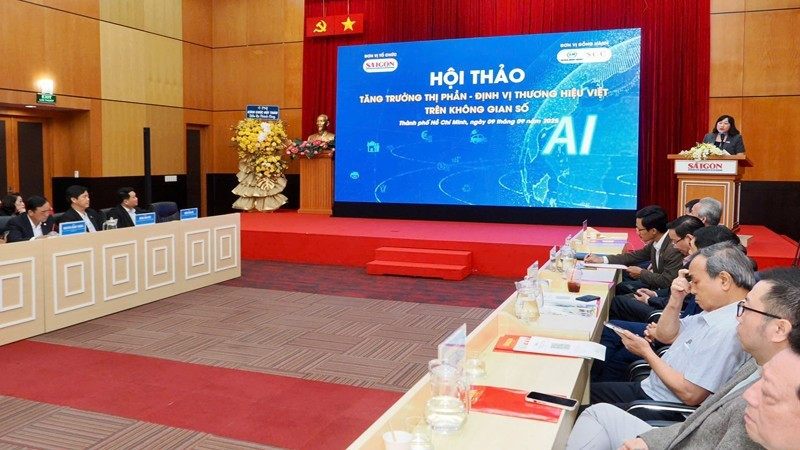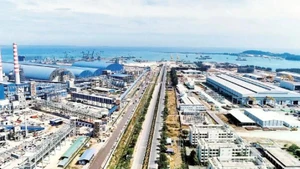The seminar provided a forum for representatives of State management agencies, economic associations, experts, and businesses to share experiences, discuss solutions, and propose policies to maintain the trust of domestic consumers, enhance competitiveness, and expand the market share of Vietnamese goods internationally.
The seminar focused on two major topics. First, how Vietnamese goods can be properly recognised, protected against counterfeit and imitation products, and gain higher credibility with consumers. Second, solutions for Vietnamese brands not only to appear but also to create a strong mark on digital platforms, adapting to the trend of global e-commerce.
According to statistics, in recent years Viet Nam’s domestic market has increasingly affirmed its role as a pillar of the economy.
With more than 100 million people, rising purchasing power, and a rapidly growing middle class, the market size is about 180 billion USD and forecast to increase to 350 billion USD by 2025.
Along with this, Viet Nam’s e-commerce market was valued at 22 billion USD in 2024 and forecast to rise to 63 billion USD by 2030, ranking second in Southeast Asia.
These figures show that there is still huge potential for Vietnamese goods. However, Vietnamese businesses are facing increasing competition from imported products with global brands, wide distribution networks, and strict quality standards.
At the same time, counterfeit, fake, and brand-infringing goods are growing more sophisticated, eroding consumer trust. The appearance of cross-border e-commerce, bringing cheap goods from neighbouring markets along with international technical barriers makes the business environment even more challenging.
Speaking at the seminar, experts and business representatives said that enterprises must build a comprehensive brand protection system to ensure brand legitimacy, from intellectual property registration and traceability codes to the application of blockchain and artificial intelligence (AI) technology to monitor counterfeit goods.
They also stressed that brand positioning must be linked to business model innovation. Enterprises must move beyond traditional channels and adopt multi-channel strategies, maintaining supermarket and retail networks while expanding online distribution. This combination not only helps expand domestic market share but also creates a strong base for Vietnamese goods in accessing global markets. In particular, businesses need the accompaniment from the State and related associations. They need preferential credit policies, digital transformation support, high-quality human resource training, and the development of industry and national standards for e-commerce.
At the seminar, Nguyen Van Dung, Vice Chairman of Ho Chi Minh City People’s Committee, said that enterprises in the city have advantages in dynamism and fast adaptation to digital trends, with favourable conditions to become a nucleus connecting production, trade, logistics, and finance in the new development space linking to nearby Binh Duong and Ba Ria-Vung Tau Provinces.
He noted that positioning and developing Vietnamese brands has become an urgent task. The city is implementing many synchronous solutions to support enterprises. The city focuses on strengthening intellectual property rights protection, promoting digital transformation in management, distribution, and marketing, building a transparent and sustainable e-commerce ecosystem, and enhancing the leading role of major enterprises in supporting small- and medium-sized enterprises.
Close coordination between the State, associations, and enterprises will be the foundation for building trust, protect brands, expand market share, and affirm the position of Vietnamese goods.
















